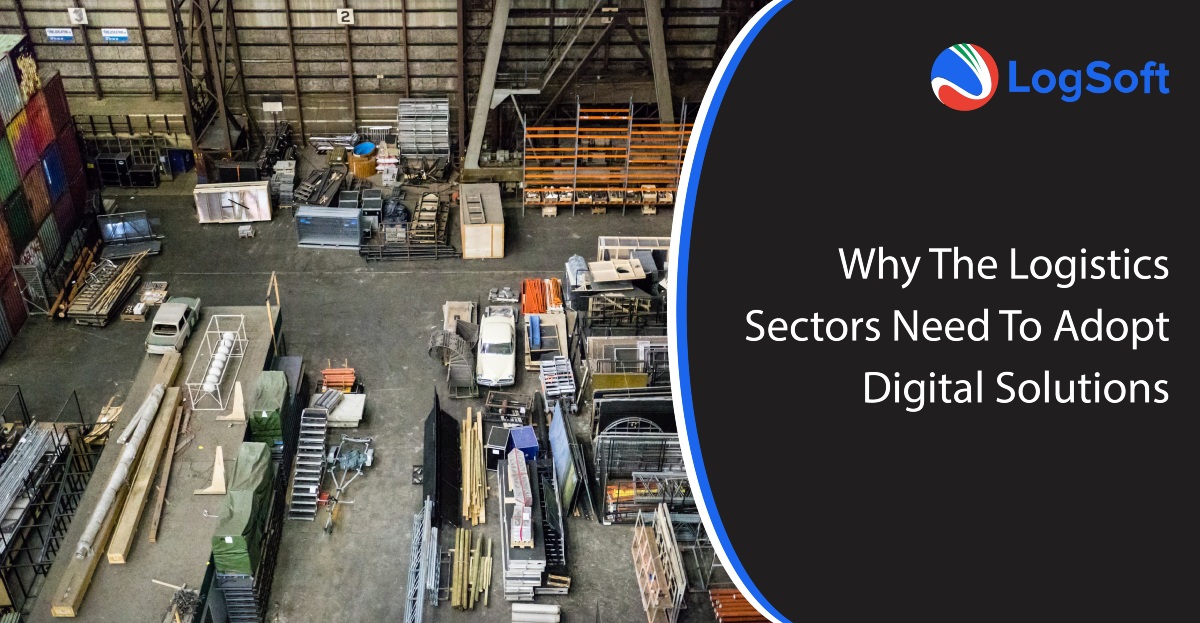What is Digitization?
Digitization is essentially the conversion of analogue data (paper-based data), into a digital format. This conversation of data can be made in various ways, like using digital tools.
Digitization began in the early 1970s with the advent of the computer. It accelerated through the 1990s and 2000s as PCs became accepted and commonplace in business and for personal use. Digitization became mainstream around 2009 when there were officially more “things” than people connected to the internet.
In logistics, digitization is an essential step that helps the logistics sector achieve its best potential. The logistics sector has seen an urgency to increase the speed of adoption of digital tools to support operations through the pandemic.
By converting all that data into a dynamic virtual representation, the logistics sector can leverage the increased control over the global supply chain and can provide greater support to internal organizational teams that are reliant on that information.
Why should Logistics Care about Digitization?
The logistics sector, in particular, should consider adopting digital tools, as various logistics activities and operations are heavily dependent on vast amounts of data that originate from 2nd or 3rd parties.
While the Logistics transactional activities – such as freight quotation management, freight contract management, shipment execution and transportation tracking – are important, in and of themselves, these individual activities fail to deliver to their potential if they are not orchestrated, synchronized and communicated.
The lack of digitization results in the logistics functions being less effective, less efficient, less responsive and more costly. The use of spreadsheets or databases for logistics data management is a tell-tale sign that a company is already one step behind in handling critical information.
Digitization enables:
- Centralized data control
- Accurate, verifiable, manageable and accessible information
- Real-time operation data management and visibility
- Synchronization of data for streamlined workflow and business processes
- Greater data accuracy for operational execution, analytics, and reporting
- Better communication and collaboration capability
- Higher levels of 3rd party execution visibility
- Increased productivity
Logistics businesses should consider digitization because the work output and effort is directly dependent on accurate and timely information and standardized processes.
The ability for logistics to communicate and collaborate with internal stakeholders and external service providers about the status of a shipment is directly dependent on the accuracy and accessibility of information in a proactive and timely fashion.
Advantages of Digitization in Transport and Logistics Business
The transportation and logistics industry is prone to many severe issues related to connectivity across devices and systems, asset under-utilization and supply chain efficiency.
Smooth Operations
The digitization of the transport and logistics industry will help in the seamless functioning of businesses involved in the sector.
Digitization can, for example, help factories or warehouses get better visibility and be more informed about the time of arrival of shipments which would, in turn, help the team manage the next steps in the operations.
Warehouse teams will also be able to act more actively on any anticipated delays.
Reduced margin of error
Automation helps organizations lessen the margin of error in logistics businesses. A machine or system is less likely to make the same mistakes as human beings.
Enhanced speed
Two of the most critical aspects of a great logistics supply chain are: speed and time.
Through high speed and minimal time taking transportations, businesses can be at a competitive advantage in the transport and logistics industry. Digital transformation can automate time-consuming operations.
Improved operational safety
All interested parties such as, shippers, businesses and customers can avail more accurate and reliable information through digitization.
This information can be related to the use of infrastructure and cargo on the road that can contribute to improved communication in the industry, enhanced productivity within businesses and safer usage of the roads.
Enhanced Connectivity
Each and every industry is becoming more digitized and, in order to stay relevant and ahead of the competition, the transport industry needs to adopt digital solutions as well.
Digitization will help in further integration down the line, enhanced communication between varied parties to maintain the industry and continue improved operational safety which will allow it to grow.
With upcoming digital tools and solutions like pallet management systems or pallet and container management solutions, businesses can leverage such digital tools to make their supply chain more efficient.
Final Word
LogSoft’s digital solutions help businesses optimize their supply chain logistics and get visibility on the movement of shipments. The visibility and active data tracking allow businesses to actively take a decision when there is a setback in the supply chain based on real-time data and save time and money by keeping the operations moving.


